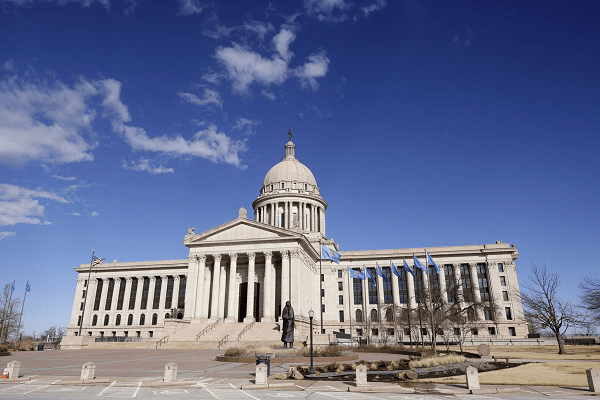
1.31.21 – Tulsa World – OKLAHOMA CITY
Oklahoma lawmakers returning Monday to the Capitol for the start of session face some daunting issues.
One of the top issues will be funding Medicaid expansion.
Oklahoma Health Care Authority CEO Kevin Corbett, who also serves as Gov. Kevin Stitt’s secretary of health and mental health, put the price tag at $164 million.
On June 30 State Question 802, a constitutional amendment, passed with 50.49% of voters’ approval. It is expected to cover an additional 200,000 people.
“It is definitely not easy, but it is something voters said they wanted to do, so we will find a way to do it,” said Senate President Pro Tem Greg Treat, R-Oklahoma City.
House Speaker Charles McCall, R-Atoka, said funding will be challenging because the state question lacked a mechanism to pay for the expansion.
For more than a decade, lawmakers refused to expand Medicaid. Supporters gathered enough signatures to get it on the ballot.
Stitt said funding will have to come out of the normal appropriations process.
“I am not raising taxes on Oklahomans,” he said.
In the wake of the 2020 Census, lawmakers will also have to redraw legislative and congressional boundaries, required to reflect population changes every 10 years.https://ff61f210106dcdc0ca169282ed8c07c0.safeframe.googlesyndication.com/safeframe/1-0-37/html/container.html
The House and Senate have held numerous meetings seeking public input.
Sen. Lonnie Paxton, R-Tuttle, chairs the Senate panel charged with redistricting for the upper chamber. He said he is hoping for a smooth and open process.
Once the state receives the information from the federal government, it will begin drawing maps, he said.
A possible showdown is brewing between Stitt and lawmakers as the governor pushes to finalize a change in Medicaid to managed care from a fee-for-service program.
Many lawmakers and health care organizations oppose it, saying the state tried it in the past with bad results, such a drop in health care providers and rising costs.
Stitt appointees make up a majority of the nine-member Oklahoma Health Care Authority, the state’s Medicaid agency, which recently voted to proceed with privatization.
“The House position, historically, has been in opposition to managed care, and conceptually we want to see the money stay in the state of Oklahoma and jobs created,” McCall said.
Whether lawmakers can stop the move remains to be seen.
Oklahoma has been 46th in the nation for the past 20 years on health care outcomes, Stitt said. “Change is hard,” Stitt said. “I get that.”
The largest issue before lawmakers and Stitt is the crafting of a state budget.
In February, the Board of Equalization will certify how much lawmakers have available to spend. The panel had indicated in December the state would have $631 million more to spend in fiscal year 2022.
The downturn in the economy due to COVID-19 and lower oil and gas prices has not affected the state to the degree that some expected.
“I think we are going to be pretty close to a flat budget of what we appropriated last year,” said Senate Appropriations Chairman Roger Thompson, R-Okemah.
Lawmakers will also be faced with the problems associated with legislating during COVID-19.
The pandemic broke out in March, causing delays in last year’s legislative session. Many bills didn’t make it through the process.
Legislative leaders have said they plan on taking precautions.
One of the top priorities for both chambers will be fast-tracking bills that make changes to the state’s Open Meetings Act so virtual meetings can be held. Lawmakers allowed those provisions last session, but the measure expired.
The outbreak exposed some vulnerabilities in state agencies that were not prepared to deal with it, such as the Oklahoma Employment Security Commission. The agency’s software is outdated, leaving many jobless Oklahomans frustrated by the system as they wait a long time for benefits.
“You will see a huge focus on economic diversification and government modernization to find efficiencies and modernization to update processes with some of the weaknesses exposed on COVID on software and hardware,” McCall said.
Lawmakers must adjourn by 5 p.m. May 28.
